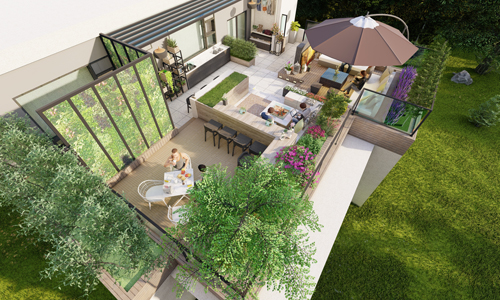Roof garden has a wide range of applications. In urban planning and architectural design, roof gardens can be applied to the following aspects:
Commercial complex: The design and construction of commercial complex itself are different from traditional urban construction. As a novel landscape design, roof garden can bring unique selling points for commercial complexes and the most comfortable environment for businesses.
Residential area: Roof garden design The public facilities for high-rise residential buildings can not only provide a place for residents to have leisure, entertainment and social exchanges, but also promote emotional interaction between residents.
Public buildings: roof gardens can provide different functions for various public buildings, such as providing additional leisure and activity places for users in public places such as swimming pools, gyms, libraries, schools and museums.
Compared with traditional gardens, roof gardens have the following advantages:
Land saving: roof garden converts the roof space of urban buildings into green space, saving limited land resources, effectively reducing the urban heat island effect, and improving the urban ecological environment.
Beautify the city: Roof garden can design beautiful and unique green landscape in the commanding place of the city, and enhance the beauty and cultural value of the city.
It can reduce the temperature: people can enjoy cool breath in the roof garden, spend comfortable days under high temperature conditions, and reduce the probability of forest fires.




